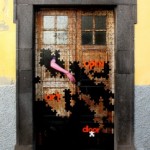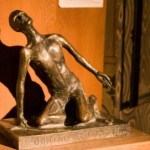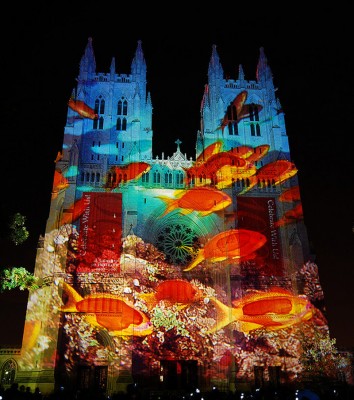 “She’s the salt of the earth!” It was a common blessing in my grandmother’s mouth, she would say it of a neighbor who was dependable in shouldering tasks, in helping people out. My grandfather used that blessing for men he could rely on, the sort who help you out
“She’s the salt of the earth!” It was a common blessing in my grandmother’s mouth, she would say it of a neighbor who was dependable in shouldering tasks, in helping people out. My grandfather used that blessing for men he could rely on, the sort who help you out
in a pinch, the neighbor who comes over to help you finish the shoveling, the kind who stand up at Meeting and volunteer to do things for the town. They said it with a special tone I remember still, and the people they described that way are the folks I like best in all the world.
Salt, essential to life, part of every cell in our bodies and part of the cells of all living things, was mined in ancient times, a precious commodity left in the earth by seas long dead and gone. And we humans, who evolved from creatures in the sea, remember that connection in our need for salt. Now inexpensive, salt was prized and pricey until modern times, the mining of it made empires rich while working slaves to death in Jesus’ day. At great banquets, distinction was made between those who sat above and below the salt, a notable dish on the table. Orthodox churches include salt in the baptismal liturgy, pouring some on the wet infant with the words, “May you be preserved for eternal life.”
When Jesus speaks this name in the Sermon on the Mount, he is implying that kind of precious worth, not merely an ordinary blessing. And far more important, he is not naming the same people my grandparents named with these words. Jesus is continuing to speak to those he has named in the Beatitudes – to the poor, the grieving, the humble, to those hungering and thirsting for justice, the merciful, the peacemakers, the persecuted and reviled.
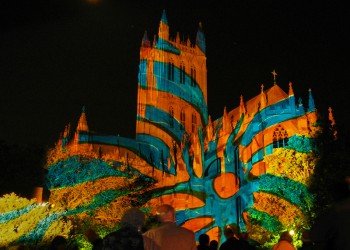 Because we are all, at times, in most of these painful situations, and because we do sometimes choose to make peace and be merciful, we are all the salt of the earth. But not for our doing of good deeds. For our pain, our poverty, and our peacefulness.
Because we are all, at times, in most of these painful situations, and because we do sometimes choose to make peace and be merciful, we are all the salt of the earth. But not for our doing of good deeds. For our pain, our poverty, and our peacefulness.
Perhaps Protestants have the hardest time accepting this precept, a teaching of Luther: salvation by grace alone. Those to whom Jesus offers the name Salt are those who have been stripped bare, who know that only grace can save them now. Salvation cannot be earned, but is grace given, it is not good living, it is mercy. The wisdom of sacraments, which rely on mystery and humility, seems to hold this well, as Julian of Norwich wrote: . . . a small thing, in the palm of my hand, that is all the world . . .and I asked, how can it survive? . . . and the answer came, It survives because God loves it.
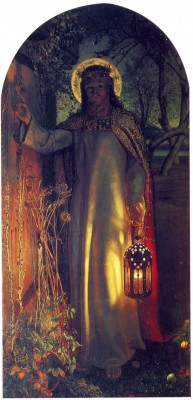 Still, all of us, in all Christian traditions, look to Jesus as the light of the world and want him to salt us, save us, grace us. In Matthew 5 Jesus says clearly we are the salt, we are the light of the world. The divinity we need in our powerlessness, he says, we already have and already are. Which does not undermine The Law, he says. The Law is the Ten Commandments, the Law of Moses, not all the rest of the codes, which come and go with the times. The ten laws that urge us to love God, and one another as we love ourselves, shall ever stand, Jesus says, and it is the mournful and the meek, the poor and the peacemakers, the merciful and the much maligned, who fulfill them.
Still, all of us, in all Christian traditions, look to Jesus as the light of the world and want him to salt us, save us, grace us. In Matthew 5 Jesus says clearly we are the salt, we are the light of the world. The divinity we need in our powerlessness, he says, we already have and already are. Which does not undermine The Law, he says. The Law is the Ten Commandments, the Law of Moses, not all the rest of the codes, which come and go with the times. The ten laws that urge us to love God, and one another as we love ourselves, shall ever stand, Jesus says, and it is the mournful and the meek, the poor and the peacemakers, the merciful and the much maligned, who fulfill them.
This week a man who exemplified all of this, Pete Seeger, died. And our mourning is great, for the troubadour of conscience, the man with the banjo who spent his whole life on the side of the meek and the persecuted, beginning with union workers in the Great Depression, moving through Civil Rights and Vietnam, turning his great heart at last to the waters of the land, and the damage done to the earth. He was persecuted in the UnAmerican Activities Days, and blacklisted for more than a decade for his refusal to name others to HUAC. That he came through this with unfettered belief in the goodness of people is a great hope and blessing for us all.
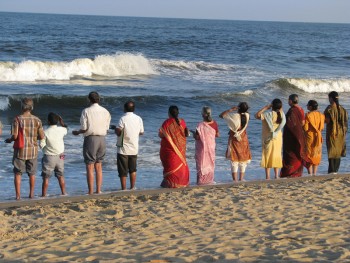 Twenty years ago, I was part of a summer program at Oxford, and stayed in Keble College, whose chapel holds the painting of Christ knocking at the door, carrying a light, calling, Come and Follow Me. Pete Seeger, long a singer in country churches but never a creedal Christian, did follow these precepts of Jesus every day of his life. Pete was the salt of the earth. He was the light of the world. He was an American blessing.
Twenty years ago, I was part of a summer program at Oxford, and stayed in Keble College, whose chapel holds the painting of Christ knocking at the door, carrying a light, calling, Come and Follow Me. Pete Seeger, long a singer in country churches but never a creedal Christian, did follow these precepts of Jesus every day of his life. Pete was the salt of the earth. He was the light of the world. He was an American blessing.
Child by child, life by life, sorrow by sorrow, we pass this tradition on. Salt and Light: you are the salt of the earth – you are the light of the world – blessed are you.
______________________________________________________
Illustrations:
1. Washington National Cathedral, bathed in light. 2000. Vanderbilt Divinity School Library, Art in the Christian Tradition.
2. Washington National Cathedral, bathed in light, 2000. Vanderbilt Divinity School Library, Art in the Christian Tradition.
3. Christ our Light. William Holman Hunt, 1853, Keble College Chapel, Oxford University. Vanderbilt Divinity School Library, Art in the Christian Tradition.
4. Hindu Family Giving Thanks by the Sea. McKay Savage, 2008. Tiruvanimayur, Chennai, India. Vanderbilt Divinity School Library, Art in the Christian Tradition.



